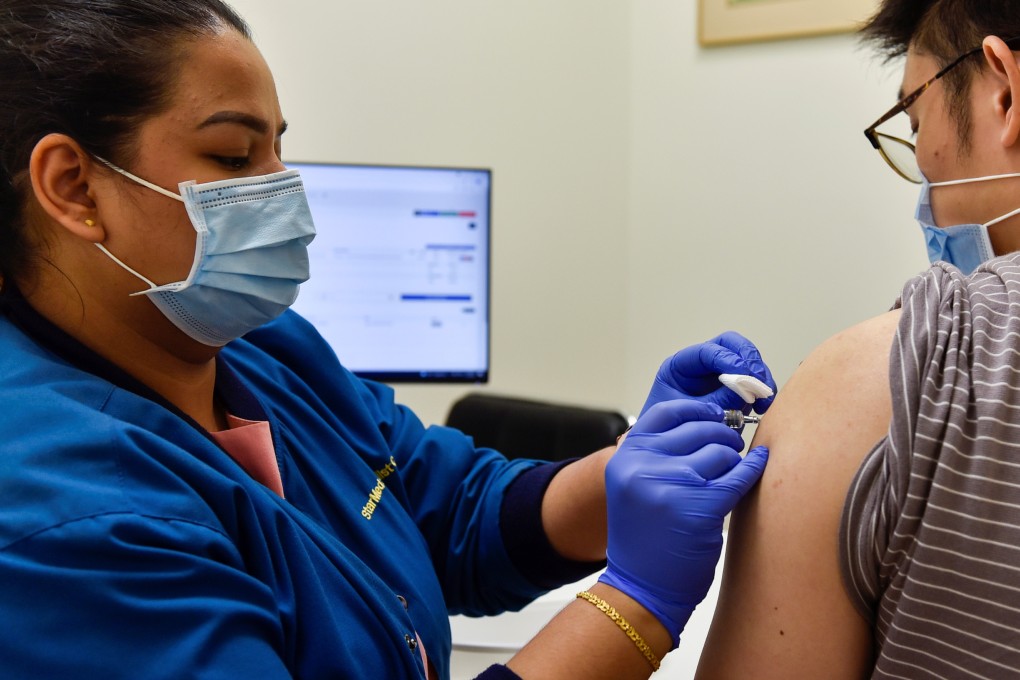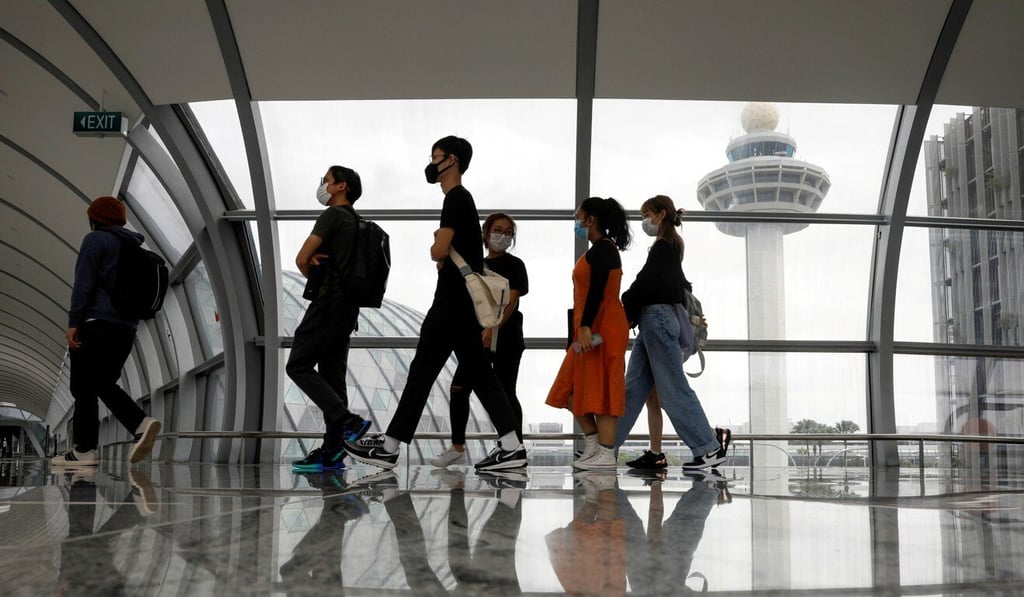Advertisement
Singapore says 1 in 20 refuse Covid-19 vaccine, launches India, Indonesia, Middle East travel lanes
- The city state now has quarantine-free travel arrangements with 21 countries after on Monday adding India, Indonesia, Qatar, the UAE and Saudi Arabia
- Authorities also signalled the gradual easing of restrictions on gatherings, and announced greater freedom of movement for low-wage migrant workers
Reading Time:3 minutes
Why you can trust SCMP
19

Kok Xinghuiin Singapore
About 5 per cent of Singapore’s 5.45 million people are deliberately remaining unvaccinated, officials said on Monday, as they signalled the gradual easing of social distancing restrictions in place since September 27.
New quarantine-free travel lanes for vaccinated travellers were also announced, with the city state set to open up to India and Indonesia from November 29, and to Qatar, the United Arab Emirates and Saudi Arabia from December 6.
Singapore now has quarantine-free travel arrangements with 21 countries, after just this month launching travel lanes with the United States, Britain, Canada, France and Spain, among others.
Advertisement

Transport minister S Iswaran said the 21 countries accounted for slightly less than half of total daily arrivals at Singapore’s Changi Airport pre-pandemic – though current quotas limit numbers to one-quarter of what they would have been otherwise.
Advertisement
Locally, residents had hoped for news on when they would be able to dine out in groups of five again – instead of in pairs – given how daily caseloads have been falling in recent days after a surge in September.
Advertisement
Select Voice
Choose your listening speed
Get through articles 2x faster
1.25x
250 WPM
Slow
Average
Fast
1.25x